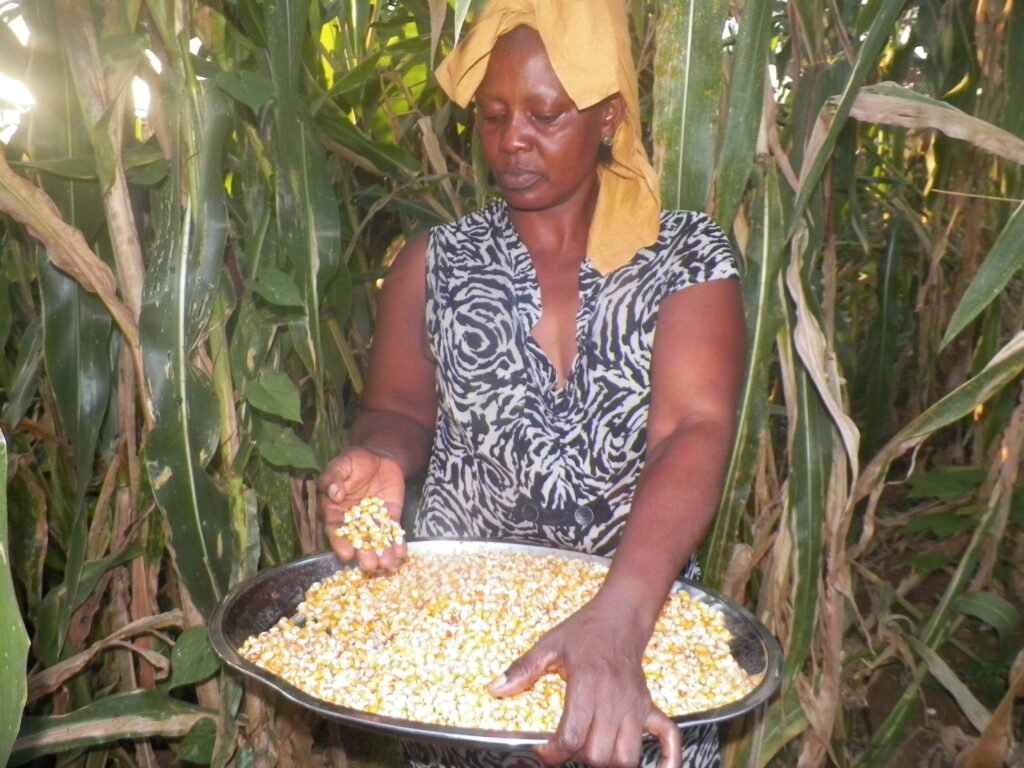By Elias Ngalame
a subsidiary of the French company Castel, in 2021 launched its grits production line following supply chain challenges brought about by Covid-19. To meet its maize supply needs estimated at 40,000 tonnes of grain corn per year, the company provided financial and input support to over 5,000 local maize farmers under their cooperative. “We receive high-quality maize seeds and some funding to increase our production capacity,” said Ngono Essomba, the maize farmers’ cooperative leader.
Officials say the project has not only brought relief to the company and the farmers but also to the consumers in the nations’s capital, Yaounde. “We now have all year-round maize supply in our local markets thanks to regular production by these farmers,” Cameroon’s Minister of agriculture Mbairobe Gabriel said at an event last year.
Like most countries in the region, Cameroon has had to contend with food security challenges, compounded by the prolonged effects of the Covid-19 pandemic and insecurity, resulting in internal displacement and an influx of refugees from Nigeria and the Central African Republic. The Russia-Ukraine war is also worsening the vulnerabilities of smallholder farmers by increasing the cost of food production due to increases in farming inputs and fuel, threatening to exacerbate food insecurity at national and household levels. The Ministry of Agriculture has been rallying support by the private sector to boost food crop production. “The government cannot do it alone.
The farmers need support from the different stakeholders so they can drive the fight against food insecurity,” Mr Mbairobe said. The brewery company says it now produces 30,000 tons of corn grits yearly for beer production with some 60,000 tons of the raw material purchased from local maize farmers and 10,000 tons of grits sourced from Maïscam, an agro-industrial units in the northern part of Cameroon.
“The project has been successful thanks to a scheme to fund quality maize production by smallholder farmers,” said Martin Nukeng, the commercial officer at Bresseries.
The raw materials from local farmers now do not only feed SABC’s newly built XAF18 billion (US$32 million) ultramodern processing plant in Mbankomo near Yaounde, but it also ensures regular all-year round supply of maize to local markets in the nation’s capital and beyond, he said. The project now also contributes to the development of the corn value chain leading to increased revenues for farmers. “We also transform maize into other products like ‘fufu’, corn milk, and corn drink. This gives us additional income,” said Alice, Ebang, a maize farmer in the region.
The brewery company also produces corn-based flour for human consumption while the by-products resulting from the processing is sold at an affordable price to livestock farmers to improve animal nutrition.
The project has also enabled them set up a poultry farm, which produces 112,500 hatching eggs per week, and a hatchery which can produce 90,000 day-old chicks over the same period.
Ministry of Agriculture data shows that the agriculture sector is the largest employer of the working population in Cameroon, employing over 70 percent of the workforce, and 90 percent of the rural workforce. Agriculture also contributes 15 percent to the country’s national income. However, the sector faces various challenges that prevent its rapid growth and significant contribution to national development.
These include the effects of climate change, soil degradation, limited access to land, high post-harvest losses, competition for limited resources, and lack of access to finance, inputs and sustainable markets, among others. Farmers say subsidy and support from both government and the private sector will go a long way to address the multiple production challenges. “It is very challenging for smallholder farmers. We cannot survive without support,” Essomba said.

